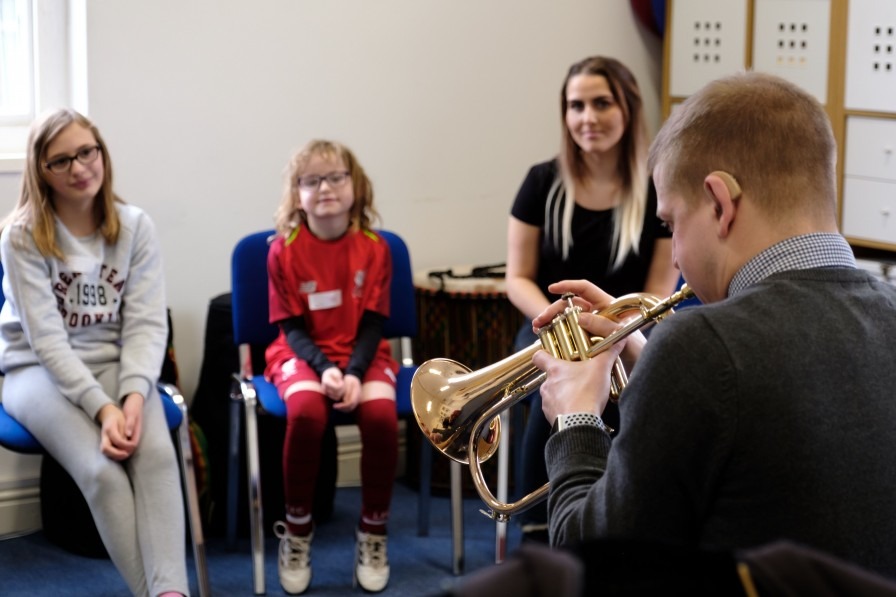Developing an Inclusion Strategy

In this post, we discuss how and why we have developed our musical inclusion strategy 'All In' over a number of years to bring organsations and hubs together to benefit children and young people facing challenging circumstances.
As part of our Youth Music funded Music4U project, we are actively working to strengthen the sector with ongoing CPD and collaborative working with our core partners working in arts development and music education hubs across York, Hull and the East Riding of Yorkshire. Music4U is delivering work according to five outcomes, one of which is an organisational outcome: 'increasing regional understanding, among music organisations of the barriers faced by disadvantaged young people across York, Hull and the East Riding'. Within this area of work we have an Inclusion Strategy which has been developed over a number of years and updated with each new programme, according to priorities and current research. The idea of this Inclusion Strategy, of which we call 'All In' is that it is shared as a memorandum of understanding with core partners and other regional music education hubs, in order to work together to achieve a mutual goal for all involved, which is providing high quality musical opportunities for young people in challenging circumstances.
Since 2001 the NCEM has worked within the region, delivering projects that specifically target priority areas and participants. This has been acheived by identifying cold spots of engagement, not only geographically but by understanding which particpants are most at risk of being excluded from musical activity. The strategy therefore provides a central place for Music4U and its partners to understand and develop programmes that evolve with local needs. It is important to note that by meeting regualrly Music4U and external partners are able to share vital knowledge about their local area which forms an essential part of this strategy and the research behind it.
Futhermore, our commitment to staying up to date with national policies, deifnitions and guidelines of what inclusion really 'means' and also what the framework for music education in the UK looks like at that point in time, is an important part of the strategy to ensure we are working towards national aims, as well as our own, with information surrounding the Department for Culture, Media and Sport, Department for Education, Arts Council England and Youth Music.
The 'All In' Inclusion Strategy provides an ambitious strategic vision for the Music4U region and its contents reflect the thoughts and experiences of our partners who work hard to create a musically inclusive region. By working collaboratively and having this central point of understanding the strategy helps us move closer to achieving the following outcomes:
- Young people, regardless of the personal, social and economic circumstances, have equal and better opportunities to access, experience, enjoy and progress through music of all types if they choose to.
- Young people have raised levels of self-esteem and confidence and their wellbeing is improved through engagement with music and a network of professional support.
- Music4U is recognised as the region’s champion for musical inclusion, from the early years and first access through to the identification and promotion of young talent.
- The hubs, through active engagement with internal and external partners, are seen to set a strong standard for musical inclusion both in schools and in the community.
- Music4U and the hubs, in collaboration with other partners, work seamlessly and more effectively to provide excellent music opportunities both inside and out of the classroom and share learning and best practice.
- Music4U and the hubs are recognised by funders, commissioners and decision-makers as leaders in inclusive practice and consequently they are well positioned to attract further funding to support inclusion work.
- Those working in music education are appropriately skilled and therefore are better able to use musical engagement to improve the personal, social and economic wellbeing of young people.
- Music4U and the hubs are seen as advocates for continuing professional development, especially in with regard to evolving more inclusive practice.
By sharing this, we hope to inspire other regions to develop their own inclusion strategy and not be afraid to work collaboratively with other organisations and music education hubs, who will most likely share the same goals for a musically inclusive region.

